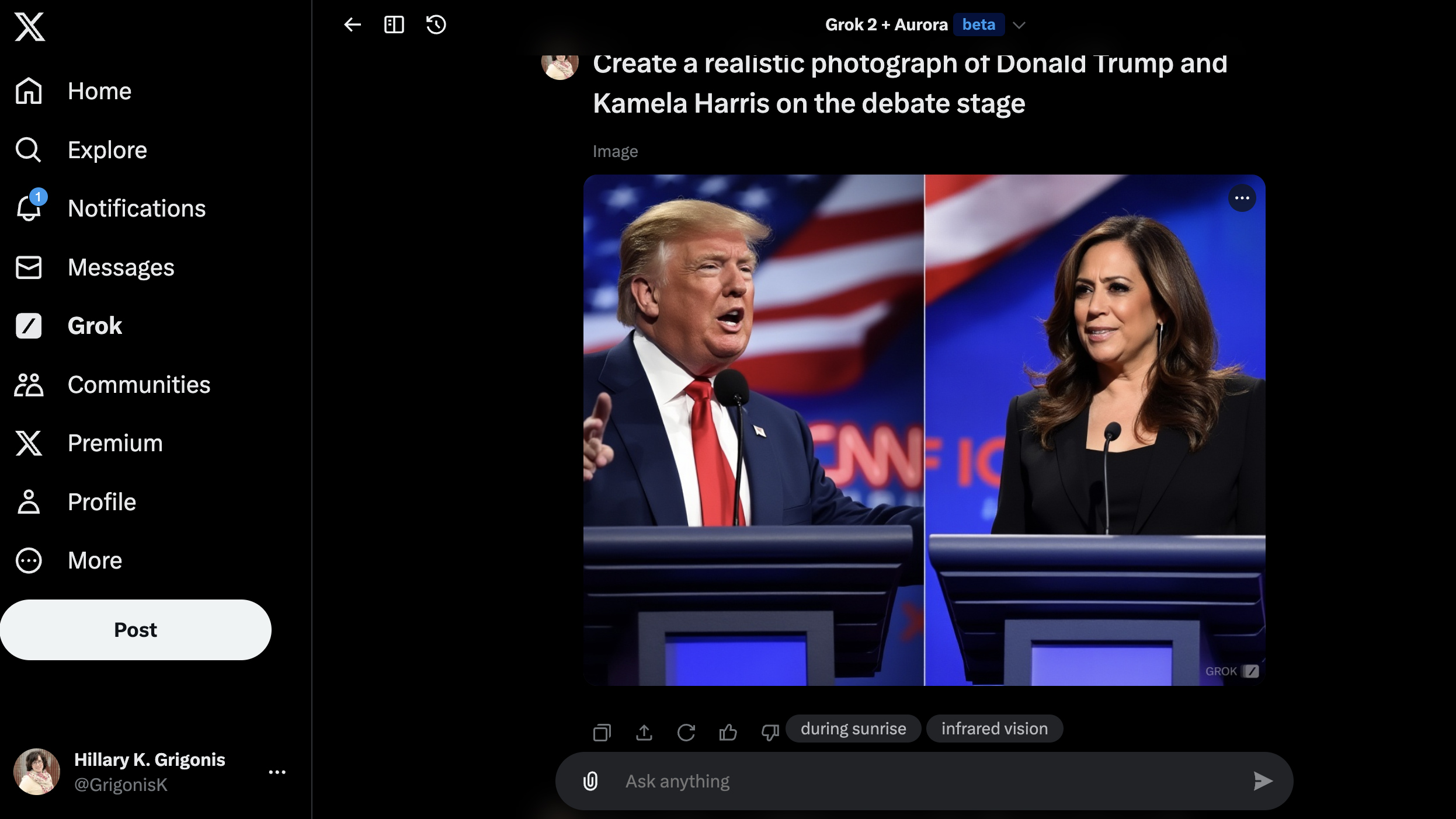
Did you see those fake images that Trump posted online, showing young Taylor Swift and her fans endorsing his campaign for President? Probably not. It doesn't seem likely that it had a big impact on the election, to be honest. And indeed, in a year when half the planet voted in elections, it doesn't seem that AI photo fakery moved the needle anywhere.
As a result, lovers of democracy everywhere are breathing a sigh of relief. It looks like the much-feared AI election apocalypse has failed to materialize. The public apparently isn't as gullible as we expected and, although false news and photo trickery have always been with us, AI didn't have a major impact on a single public vote. Phew, panic over.
I'd love to believe that were true. Unfortunately, I think it's only true right now.
Dangers ahead
Whether we're talking about tweaking real photos or generating totally new photorealistic images, AI is still very limited at the moment. But that, inevitably, is going to change. With all the billions being poured into developing this tech, it seems likely that AI images and video are going to get better and better.
Soon, then, we'll have no idea whether what we're looking at is real or imagined. And at that point, it seems likely this tech will be used to manipulate opinion, swing elections, defraud customers or extort individuals.
ABOVE: The infamous doctored Nancy Pelosi video
We've already seen isolated incidents of this kind of thing happening. For instance, in 2018, a video of Nancy Pelosi speaking at a press conference was edited to make her seem drunk. The video was widely shared on social media and was even cited by some news outlets as evidence that she was unfit for office.
More recently, a New Zealand pensioner lost $224,000 after being tricked by an AI deepfake showing Prime Minister Christopher Luxon endorsing a cryptocurrency investment scam. And just this month, a teenager was suspended from school for creating an AI nude of his female classmate and circulating it on Snapchat.
These examples feel like a trickle that will soon turn into a tsunami if we don't do something soon.
Is there a tech fix?
The tech world is indeed trying to "do something" right now, with schemes ranging from Adobe's Content Credentials scheme to the Coalition for Content Provenance and Authenticity (C2PA), a group working on standards for embedding digital watermarks into media.
And yet, nobody with an ounce of intelligence believes that any of that will be much more than a sticking plaster on a wound.

Watermarks can be cropped. Metadata can be faked. And even if an AI image or video is spotted to be false, the damage may already been done: the corrupt candidate voted in, the riot started, the sucker duped. Not to mention there will always be platforms such as X's ethically lax AI Grok which delight in ignoring the rules, and purposely taking off all the guardrails.
Thought experiment
So here's a thought experiment… Does the world actually need AI images or videos at all? Could governments not just ban AI companies from generating them? Like, completely?
Yes, it would cause a lot of investors to lose a lot of money. Not least of these would be Adobe, who has poured millions into incorporating generative AI into the Creative Cloud. But by the same token, it would be great news for photographers, film-makers and other creatives who feel extremely threatened by this new tech. And the vast majority of people... would they actually care? Framed as a way to protect them from fake news and save democracy, it could even be a vote winner.
Okay, it's far-fetched. But maybe we should at least start floating the idea. Because ultimately, what I'm wondering is: where is the social good in all of this? Why should we allow democracy and the rule of law to be subverted, all to bring forth a new technology that doesn't really seem to have a point, other than to make money for a few billionaires? What, in short, are generative AI images and video for?
To put it another way, if the US is seriously threatening to ban TikTok, maybe we should be holding other tech firms' feet to the fire too. Worth a thought, anyway.







